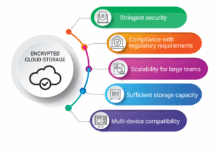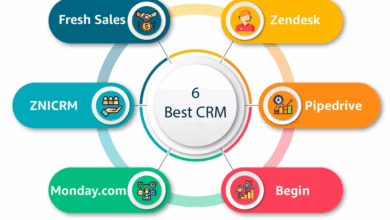Cloud Hosting for Small Business: Benefits, Top Products, and How to Choose the Best Provider

Cloud hosting for small business is no longer a luxury but a necessity for scaling operations, ensuring uptime, and enhancing security. With the rise of digital solutions, small businesses are rapidly adopting cloud hosting services to improve their workflow, reduce operational costs, and provide their customers with seamless access to services. In this article, we will dive deep into what cloud hosting is, why it is essential for small businesses, the best products available today, and how to choose the right provider for your needs.
What Is Cloud Hosting and Why Is It Crucial for Small Businesses?
Cloud hosting involves the use of a network of remote servers hosted on the internet, instead of a single server or local hardware. This allows small businesses to rent space on a virtual server, offering them flexibility, scalability, and robust performance without the hefty upfront costs of traditional physical hosting. Here’s why small businesses should consider cloud hosting:
Scalability
Small businesses can quickly adjust their resources with cloud hosting, allowing them to scale up during peak demand times and scale down when traffic subsides. This means you only pay for the resources you use, saving money during low-traffic periods.
Cost Efficiency
With cloud hosting, businesses don’t need to invest in expensive hardware or worry about maintenance costs. Cloud hosting providers handle the infrastructure, updates, and support, leaving small businesses free to focus on growth.
Enhanced Security
Cloud providers invest heavily in security features like encryption, multi-factor authentication, and firewalls to protect your data. This level of security can be difficult for small businesses to achieve with on-premises solutions.
Improved Reliability
Cloud hosting is highly reliable, with top-tier providers offering 99.99% uptime guarantees. This ensures that your website and online services are always available to customers, providing peace of mind and improving customer satisfaction.
Benefits of Cloud Hosting for Small Business
Cloud hosting brings a multitude of benefits to small businesses. Here are some of the most compelling reasons why cloud hosting is so essential:
1. Flexibility and Control
Small businesses need to be agile to respond to market demands, and cloud hosting allows them to quickly adjust resources to suit their needs. Want to add more storage or increase processing power? Cloud hosting lets you do that in minutes.
2. Accessibility
With cloud hosting, small business owners and employees can access data and applications from any device with an internet connection. This means teams can work from anywhere, improving collaboration and productivity.
3. Disaster Recovery
Accidents happen, and data loss can be catastrophic. Cloud hosting providers typically include automated backup services, ensuring that your business data is stored securely and can be quickly restored in the event of a system failure.
4. Better Performance
With cloud hosting, businesses enjoy faster load times, faster backups, and better performance overall, which can significantly impact the user experience and customer satisfaction.
Top Cloud Hosting Products for Small Business
Here are some of the most popular cloud hosting providers that cater to small businesses, each offering unique features that suit different needs.
1. Bluehost – Best for WordPress Hosting
Bluehost is one of the most popular cloud hosting providers for small businesses. It is known for its user-friendly interface and high uptime. With robust security features and excellent customer service, Bluehost offers a great choice for businesses looking for affordable, reliable cloud hosting, especially those using WordPress.
| Feature | Bluehost |
|---|---|
| Use Case | Ideal for small businesses with WordPress websites |
| Pros | Excellent uptime, 24/7 support, one-click WordPress installation |
| Cons | Limited advanced features compared to competitors |
| Price | Starting at $2.95/month |
| Features | Free domain, free SSL, automatic backups, 30-day money-back guarantee |
2. HostGator – Best for Flexibility
HostGator offers scalable cloud hosting plans that grow with your business. Its cloud hosting plans provide an impressive 45-day money-back guarantee, making it a great choice for new businesses testing the waters.
| Feature | HostGator |
|---|---|
| Use Case | Ideal for businesses that need scalable and flexible cloud hosting |
| Pros | Scalable plans, 45-day money-back guarantee, robust security features |
| Cons | Customer support could be improved |
| Price | Starting at $4.95/month |
| Features | Unlimited storage, free SSL, $100 Google Ads credit |
3. SiteGround – Best for Performance
SiteGround is known for its fast speeds and excellent customer support. SiteGround’s cloud hosting services offer great performance, security, and support, making it a strong contender for growing businesses needing reliable and fast hosting.
| Feature | SiteGround |
|---|---|
| Use Case | Best for small businesses that require high performance |
| Pros | Excellent support, fast speeds, enhanced security |
| Cons | Higher pricing compared to some other providers |
| Price | Starting at $3.99/month |
| Features | Free daily backups, managed WordPress hosting, built-in caching |
4. A2 Hosting – Best for Developers
A2 Hosting offers high-performance cloud hosting services with a focus on speed. It’s a great choice for developers who require fast and reliable hosting, with features like free site migration, multiple server locations, and unlimited storage.
| Feature | A2 Hosting |
|---|---|
| Use Case | Ideal for developers and businesses with high-traffic websites |
| Pros | Turbo server technology, unlimited storage, free website migration |
| Cons | Higher renewal rates after the first term |
| Price | Starting at $4.99/month |
| Features | Free Cloudflare CDN, SSD storage, unlimited bandwidth |
5. DigitalOcean – Best for Advanced Users
DigitalOcean is a cloud hosting provider tailored to developers and small businesses with more advanced technical needs. With features like scalable droplets and extensive documentation, DigitalOcean is ideal for businesses that require high-performance cloud computing.
| Feature | DigitalOcean |
|---|---|
| Use Case | Best for businesses with developers or technical expertise |
| Pros | Highly customizable, scalable resources, affordable pricing |
| Cons | Requires technical knowledge |
| Price | Starting at $5/month |
| Features | SSD storage, customizable droplets, great for developers |
How to Choose the Right Cloud Hosting Provider
When selecting a cloud hosting provider for your small business, it’s important to assess the following factors:
- Uptime Guarantee: Look for providers with a strong uptime guarantee, ideally 99.99% or higher, to ensure your website remains accessible.
- Customer Support: Choose a provider that offers 24/7 customer support through various channels, such as live chat, email, and phone.
- Scalability: Consider whether the provider allows you to easily scale resources based on demand.
- Security: Ensure that the provider offers strong security features like SSL certificates, firewalls, and data encryption.
- Pricing: Review pricing models to ensure that you’re getting good value for the features provided.
How to Buy and Where to Buy
Cloud hosting services can be purchased directly through the provider’s website. Many hosting companies offer special discounts and promotions for new customers. For instance, Bluehost offers a $2.95/month plan for new customers. You can click the following links to buy these services:
- Bluehost Cloud Hosting
- HostGator Cloud Hosting
- SiteGround Cloud Hosting
- A2 Hosting Cloud Hosting
- DigitalOcean Cloud Hosting
Use Cases for Cloud Hosting: What Problems Does It Solve?
Cloud hosting isn’t just about storage; it solves multiple key problems that small businesses face today. Here are some of the most significant problems that cloud hosting can help solve, ensuring your business remains competitive, secure, and adaptable.
1. Website Downtime Due to Traffic Surges
One of the primary benefits of cloud hosting is its ability to handle unexpected traffic spikes. Imagine your business launches a special promotion or a viral blog post, but your website crashes due to too much traffic. This can lead to loss of sales and damage to your reputation.
Cloud hosting providers offer scalable solutions that automatically allocate resources (like additional bandwidth or storage) to accommodate traffic spikes, so you don’t face any downtime. This makes cloud hosting essential for businesses that experience fluctuating or growing traffic.
2. Lack of Flexibility with Traditional Hosting
Traditional hosting plans usually have fixed resources that can be hard to scale when your business grows. For instance, upgrading to a new plan might require moving to a completely different infrastructure. Cloud hosting, on the other hand, offers flexibility by letting businesses scale up or down as needed, only paying for what they use.
This flexibility is particularly useful for small businesses that need to remain agile, whether expanding during peak seasons or scaling back during off-peak times.
3. Limited Security Resources for Small Businesses
Small businesses often lack the resources to implement strong security measures on their own. However, cloud hosting providers invest heavily in security protocols, such as firewalls, encryption, and data redundancy, which helps protect your business data from breaches, attacks, and theft.
Cloud providers also offer automatic updates to patch any security vulnerabilities, ensuring your business is always protected from the latest threats. This level of security is typically out of reach for smaller businesses using on-premises solutions.
4. High IT Costs and Infrastructure Maintenance
Traditional hosting and on-premises infrastructure can be costly to maintain, especially for small businesses that lack dedicated IT staff. Cloud hosting eliminates this burden by providing all the necessary hardware, software, and IT support you need to run your business smoothly.
Cloud hosting providers handle maintenance, updates, and hardware management, allowing your business to save money on IT expenses and focus on what matters most: growth and customer satisfaction.
5. Disaster Recovery and Data Loss
Every business is susceptible to data loss from unexpected events, such as natural disasters, human error, or cyber-attacks. With cloud hosting, your data is automatically backed up and stored in multiple data centers, ensuring it’s safe and accessible even if one server goes down.
Cloud hosting ensures you’re not at risk of losing important customer information, financial records, or intellectual property. In the event of an incident, disaster recovery is quick and efficient, allowing you to resume business operations faster.
How to Choose the Right Cloud Hosting Provider for Your Small Business
Choosing the right cloud hosting provider involves careful consideration of several factors, which can make or break your small business’s online presence. Here are a few key elements to help you evaluate which provider is the best fit:
1. Performance and Speed
For most businesses, performance is a critical factor. Slow website loading speeds can lead to higher bounce rates, reduced sales, and a poor customer experience. Look for cloud hosting providers that offer fast speeds and utilize technologies like Content Delivery Networks (CDNs) and solid-state drives (SSDs) for faster load times.
2. Customer Support
Responsive and knowledgeable customer support is vital, especially for small businesses with limited technical expertise. Opt for a provider that offers 24/7 support through multiple channels, including live chat, phone, and email.
3. Uptime Guarantee
Uptime refers to the amount of time your website remains online without disruption. For small businesses, website downtime can directly impact revenue and customer trust. Choose a cloud hosting provider that offers a strong uptime guarantee (at least 99.9%) to ensure your website is available around the clock.
4. Ease of Use
You don’t want to spend hours configuring your hosting setup. Look for a cloud hosting provider with an intuitive user interface (UI) that makes managing your hosting environment easy. Most reputable providers offer one-click installations for popular applications, such as WordPress and eCommerce platforms, allowing you to get your website up and running quickly.
5. Pricing Plans
Pricing is always a crucial factor when choosing a hosting provider. While cloud hosting is generally more cost-effective in the long run, compare the plans and billing structures of different providers to find one that fits within your budget. Make sure to evaluate the value you’re getting for your investment—be sure that performance, scalability, and security are not compromised for a lower price.
Cloud Hosting for Small Business Is the Future
In today’s fast-paced digital world, small businesses cannot afford to rely on outdated hosting solutions that limit growth and flexibility. Cloud hosting for small business not only offers greater scalability, enhanced security, and improved performance, but it also empowers you to focus on growing your business rather than managing infrastructure.
Whether you’re just starting or scaling your business, the right cloud hosting provider can be a game-changer. By offering scalable resources, low-cost plans, enhanced security, and 24/7 support, cloud hosting allows businesses to thrive in a competitive market.
Next Steps: Ready to take your business to the next level with cloud hosting? Start by exploring the top cloud hosting providers we’ve discussed in this article. Sign up for a plan that fits your business needs, and don’t forget to look for special offers and discounts to maximize your savings!
Where to Buy:
- Bluehost Cloud Hosting
- HostGator Cloud Hosting
- SiteGround Cloud Hosting
- A2 Hosting Cloud Hosting
- DigitalOcean Cloud Hosting
In-Depth Look at How Cloud Hosting Improves Operational Efficiency for Small Businesses
For small businesses, operational efficiency is crucial in order to stay competitive and profitable. Cloud hosting addresses several operational pain points, enabling businesses to focus on growth, while reducing the overhead costs associated with traditional IT infrastructure. Here’s how cloud hosting improves operational efficiency:
1. Reduced IT Management Costs
In traditional hosting setups, small businesses are often required to hire a dedicated IT team or contractors to maintain and troubleshoot their infrastructure. However, with cloud hosting, this responsibility shifts to the service provider. Cloud hosting providers offer comprehensive management services, which include monitoring, updates, and maintenance of servers, saving businesses the costs and complexities of managing their IT systems.
With cloud hosting, businesses only pay for what they use, as opposed to traditional hosting where resources are fixed. This pay-as-you-go model ensures more cost-effective operations, as businesses can scale up or down based on their needs.
2. Collaboration and Remote Work
In today’s work environment, remote work and collaboration tools are essential. Cloud hosting enhances this by providing employees with easy access to data, applications, and files from any location with an internet connection. This facilitates better communication and collaboration, which is especially important for small teams working remotely or across multiple locations.
Cloud hosting ensures that all employees, regardless of their location, have access to the same tools, software, and files, improving the efficiency and productivity of the entire team. Additionally, cloud-based communication tools like Slack or Microsoft Teams can be integrated easily, making team collaboration seamless.
3. Automation and Integration
Automation is another key benefit of cloud hosting that directly contributes to operational efficiency. Small businesses can automate repetitive tasks like backups, software updates, and security scans. By setting up automation workflows, businesses can save time and reduce the risk of human error.
Cloud hosting also allows for easy integration with third-party tools like CRM systems (e.g., Salesforce), marketing automation platforms, and accounting software. These integrations ensure that data flows smoothly between systems, eliminating the need for manual data entry and reducing the potential for mistakes.
4. Data Analytics and Insights
Cloud hosting enables businesses to leverage big data analytics without the need for expensive, on-premises data storage solutions. By using cloud-based analytics tools, small businesses can gain valuable insights into customer behavior, sales trends, website traffic, and other critical metrics. These insights help businesses make informed decisions, improve their products and services, and optimize marketing strategies.
For example, cloud hosting providers like Amazon Web Services (AWS) offer advanced data analytics tools like AWS Redshift and AWS QuickSight, which allow small businesses to analyze large datasets and extract actionable insights.
Real-World Case Studies: How Cloud Hosting Transformed Small Businesses
Now, let’s dive into real-world examples of how cloud hosting has positively impacted small businesses. These case studies demonstrate the power of cloud hosting in solving common problems and fostering growth.
1. Case Study: A Local Bakery Expands Nationwide
Business: Sweet Treats Bakery
Challenge: Sweet Treats Bakery, a small family-owned business, faced difficulties in scaling their operations during seasonal surges. The bakery experienced slow website performance, especially during high-demand periods like the holidays, which led to frustrated customers and lost sales.
Solution: Sweet Treats Bakery moved to cloud hosting with a provider that offered automatic scalability. With cloud hosting, their website could handle traffic spikes during peak times without performance degradation. Additionally, they implemented cloud-based inventory management, which helped streamline supply chain processes.
Outcome: The bakery’s website load times improved dramatically, customer satisfaction increased, and they were able to expand their delivery services nationwide, all thanks to the flexibility and scalability of cloud hosting.
2. Case Study: A SaaS Company Improves Data Security
Business: Secure Solutions Inc.
Challenge: Secure Solutions Inc., a software-as-a-service (SaaS) provider, faced significant security concerns regarding their customer data. They were using traditional on-premises servers, which were expensive to maintain and vulnerable to security breaches. As a small business, they lacked the resources to implement robust security measures.
Solution: By migrating to a cloud hosting solution, Secure Solutions gained access to top-tier security features such as data encryption, firewalls, and 24/7 monitoring, without the hefty cost of managing their own servers. They also benefitted from automated backups, which ensured that customer data was regularly secured.
Outcome: The company saw a significant reduction in security incidents, improved customer trust, and compliance with data protection regulations, ultimately leading to increased business growth.
3. Case Study: A Digital Marketing Agency Scales Its Operations
Business: Digital Vision Media
Challenge: Digital Vision Media, a small digital marketing agency, struggled with limited server capacity, resulting in slow performance of their marketing dashboards and analytics platforms. This hindered their ability to deliver real-time reports and analytics to clients.
Solution: Digital Vision migrated their operations to a cloud hosting solution that offered faster server speeds, greater flexibility, and the ability to scale based on demand. The cloud hosting platform also integrated seamlessly with third-party analytics tools and CRM systems.
Outcome: The agency’s clients experienced faster data processing and more timely reports. As a result, client satisfaction increased, and the agency was able to handle larger accounts, leading to business expansion.
The Future of Cloud Hosting for Small Businesses: Trends to Watch
As cloud hosting continues to evolve, there are several key trends that small businesses should keep an eye on. These emerging technologies can enhance cloud hosting’s capabilities even further, offering new opportunities for small business owners.
1. Edge Computing
Edge computing is an extension of cloud computing that allows data processing to happen closer to where the data is generated, rather than being processed in centralized data centers. This reduces latency and speeds up data transfer, making it ideal for small businesses that require real-time analytics or customer interactions.
2. AI and Machine Learning Integration
Cloud hosting providers are increasingly integrating AI and machine learning tools to help small businesses analyze large datasets and automate business processes. These technologies can improve customer insights, marketing strategies, and even automate customer support via chatbots.
3. Serverless Architecture
Serverless computing, which allows businesses to run code without managing servers, is gaining popularity for its simplicity and cost-efficiency. Small businesses can leverage serverless computing to build scalable applications without having to worry about server maintenance or infrastructure management.
4. Hybrid Cloud Solutions
Many small businesses are adopting hybrid cloud solutions, combining both public and private cloud infrastructure. This enables businesses to keep sensitive data in a private cloud while leveraging public clouds for less sensitive applications. This flexible approach offers greater control and security while still benefiting from the cost-effectiveness of the public cloud.
Why Cloud Hosting Is Essential for Small Business Success
Cloud hosting is no longer a trend but a necessity for small businesses that wish to remain competitive in the digital age. From enhancing operational efficiency to providing enhanced security, cloud hosting solves many of the problems businesses face today.
By migrating to the cloud, small businesses can scale operations, improve collaboration, reduce costs, and provide better customer experiences. Whether you’re a startup looking for flexibility or an established business aiming to improve performance and security, cloud hosting is the key to unlocking growth and success.
If you’re ready to move to cloud hosting, explore the providers we’ve discussed and choose one that fits your business’s needs. With the right provider, you’ll be well-equipped to handle today’s challenges and seize tomorrow’s opportunities.
Transitioning to Cloud Hosting
Migrating to cloud hosting can seem like a daunting task, especially for small businesses unfamiliar with the process. However, with the right preparation and approach, it can be done smoothly and with minimal disruption. Here are some tips to help you transition to cloud hosting without a hitch:
1. Evaluate Your Current Infrastructure
Before migrating, take a close look at your current hosting environment. Identify the key features, applications, and data that need to be moved to the cloud. This evaluation helps you understand the scope of the migration and decide whether to move everything at once or in phases.
For instance, if you’re running a small eCommerce business, you may want to prioritize moving your website and databases first, followed by your inventory management system and customer support tools.
2. Choose the Right Cloud Hosting Provider
Not all cloud hosting providers are created equal. As mentioned earlier, it’s crucial to select a provider that offers the best value for your business’s specific needs, whether it’s scalability, performance, or cost-effectiveness.
Look for a provider that offers:
- Excellent support: Opt for a provider with 24/7 support via multiple channels (chat, phone, email).
- Security measures: Choose a provider that provides encryption, firewall protection, and data backups.
- Customizable solutions: Make sure the cloud hosting provider offers flexible plans that grow with your business.
3. Test Your Cloud Setup Before Going Live
Don’t rush to migrate everything to the cloud all at once. It’s crucial to test your cloud hosting setup first. Many cloud hosting providers offer staging environments where you can test the functionality of your website or application before migrating it completely.
Test the loading speed, security settings, and overall user experience to ensure everything works smoothly. This test run will help you identify any potential issues and resolve them before your customers are affected.
4. Back Up Your Data
Before moving any data to the cloud, always perform a complete backup of your existing data. This serves as a safety net in case something goes wrong during the migration process. Most cloud hosting services provide automated backup features, but it’s essential to take this extra step to protect your business data.
5. Work with an Expert (If Needed)
If you’re unsure about the technical aspects of the migration, consider hiring a cloud hosting expert or a third-party IT consultant. An experienced professional can help ensure a seamless transition and prevent costly mistakes. While this adds to the cost, it’s worth it to have peace of mind and avoid potential downtime.
The Role of Cloud Hosting in Business Continuity and Disaster Recovery
One of the most critical advantages of cloud hosting for small businesses is its ability to enhance business continuity and support disaster recovery plans.
1. Instant Data Backups
With cloud hosting, your data is continuously backed up to remote servers, ensuring it is safe even if your physical location experiences an unexpected disruption. Whether it’s a natural disaster, hardware failure, or cyberattack, cloud hosting providers ensure that your business can recover quickly without losing valuable data.
For instance, if a small business faces a fire in its office or a severe local power outage, all business-critical data stored on the cloud remains intact and accessible remotely. This is a huge advantage compared to traditional hosting, where data could be lost if a physical server is damaged.
2. Scalability During Emergencies
In times of crisis, the ability to scale quickly is critical. Cloud hosting enables small businesses to rapidly increase resources (such as bandwidth, server space, or processing power) without the need to purchase new physical infrastructure. This is especially important in the event of unexpected growth or surges in demand during a crisis or special promotion.
For example, if a small business’s website experiences an influx of visitors during a promotion or after an event, cloud hosting can automatically scale up resources to meet demand and prevent crashes, all without requiring human intervention.
3. Redundancy and Data Replication
Cloud hosting providers typically use multiple data centers across different locations to store data. This redundancy ensures that if one server or data center goes down, your business can still access its data from another location. This replication of data is a critical component of disaster recovery, as it ensures that your business doesn’t experience downtime or data loss during an emergency.
For example, cloud hosting services like AWS and Microsoft Azure store data in multiple geographic regions, ensuring higher availability and reducing the risk of complete system failure.
Emerging Technologies in Cloud Hosting for Small Businesses: What to Watch Out For
As technology continues to evolve, cloud hosting is expected to adopt new features that will further benefit small businesses. Here are some of the most exciting trends that small business owners should keep an eye on:
1. Artificial Intelligence and Automation
AI is already being integrated into cloud hosting solutions to automate tasks such as load balancing, predictive maintenance, and security monitoring. In the near future, AI will likely be used to offer more advanced automation features, helping businesses run operations with minimal human intervention.
Small businesses will benefit from features like automated resource scaling, AI-driven customer support, and predictive analytics that can help forecast demand and improve business strategies.
2. Serverless Computing
Serverless computing is revolutionizing the way businesses build and deploy applications. With serverless architecture, businesses don’t need to worry about managing servers or infrastructure. The cloud provider handles all aspects of infrastructure, allowing small businesses to focus on developing their applications.
Serverless computing is highly scalable and cost-efficient, making it an attractive option for small businesses that need flexible hosting solutions without the complexity of traditional server management.
3. Blockchain for Data Security
Blockchain technology is gaining traction in cloud hosting, particularly in terms of data security and transparency. By utilizing blockchain, cloud hosting providers can offer more secure ways to manage transactions and sensitive data.
Small businesses in sectors like finance, eCommerce, and healthcare could see significant benefits from this technology, as it provides enhanced security for customer transactions and data storage.
4. 5G Integration
The rollout of 5G technology is expected to have a major impact on cloud hosting. With faster and more reliable internet speeds, small businesses can take advantage of cloud hosting solutions that offer real-time data processing and near-instant file uploads and downloads.
Businesses that rely on real-time applications, such as video streaming or IoT devices, will benefit the most from the high-speed capabilities of 5G.
The Clear Choice for Small Businesses
Cloud hosting continues to prove itself as a game-changer for small businesses across industries. With its scalability, security, cost-efficiency, and flexibility, cloud hosting not only meets the current needs of small businesses but also paves the way for future growth.
By adopting cloud hosting, small businesses can enjoy enhanced security, better performance, lower IT costs, and greater agility. If you haven’t already made the switch, now is the time to explore the wide array of cloud hosting options available to ensure your business is positioned for success in the digital age.
Take Action Today!
Start exploring the right cloud hosting solution for your business today and unlock the benefits of cloud computing for future growth. Ready to get started? Check out top cloud hosting providers like Bluehost, DigitalOcean, and SiteGround to find the perfect plan for your needs.
FAQ
Can cloud hosting handle large websites or applications?
- Yes! Cloud hosting is scalable, meaning it can handle websites or applications of any size, from small blogs to large eCommerce stores or complex SaaS platforms. Cloud providers can adjust resources in real time to meet your growing needs.
What is the most cost-effective cloud hosting provider for small businesses?
- Some popular cost-effective cloud hosting providers for small businesses include DigitalOcean, Linode, and AWS Lightsail. Pricing varies based on your business’s needs, so be sure to evaluate features like scalability, support, and security in addition to the price.
Do cloud hosting providers offer free trials?
- Many cloud hosting providers offer free trials or free-tier plans that allow small businesses to test out their services before committing to a paid plan. Providers like AWS, Google Cloud, and Microsoft Azure all offer free credits for new users to get started.
How secure is cloud hosting compared to traditional hosting?
- Cloud hosting is often more secure than traditional hosting, as it benefits from advanced encryption, firewalls, and regular security updates. Most cloud hosting providers also offer disaster recovery and data backup features that are typically not available with traditional hosting.
What types of businesses benefit the most from cloud hosting?
- Cloud hosting is ideal for small businesses in any industry, but particularly for those with fluctuating resource needs, such as eCommerce stores, SaaS companies, media and entertainment businesses, and startups. It’s also great for businesses looking for flexible, low-maintenance hosting solutions.









